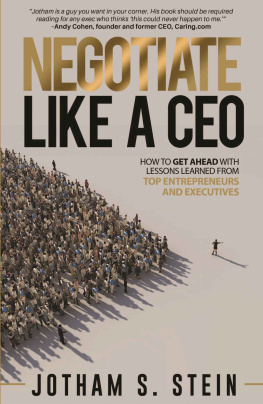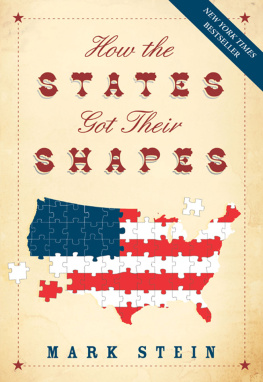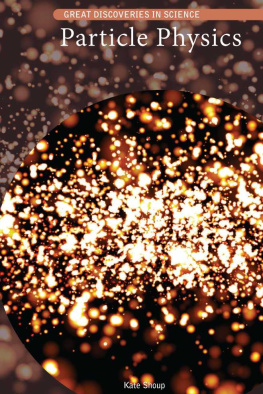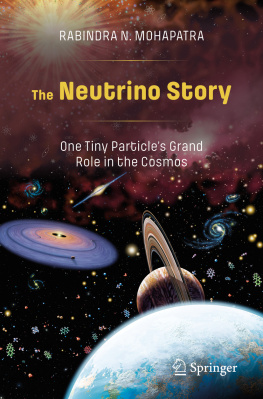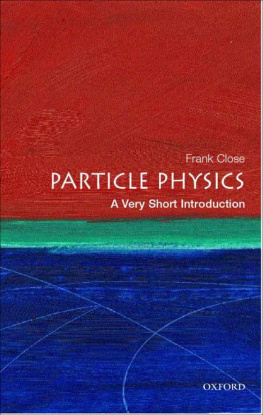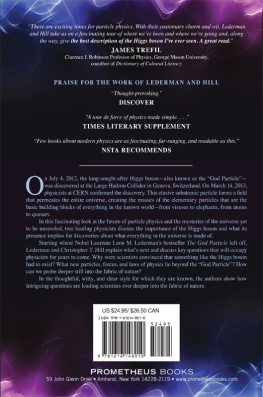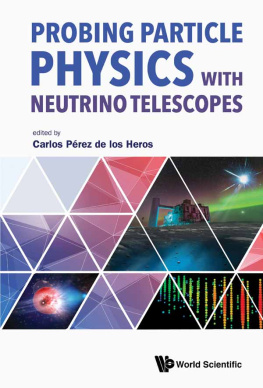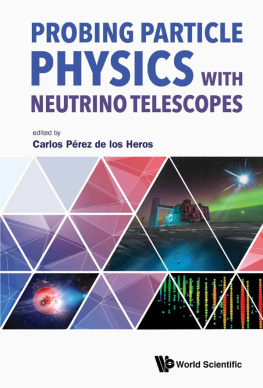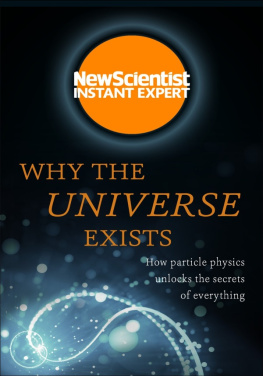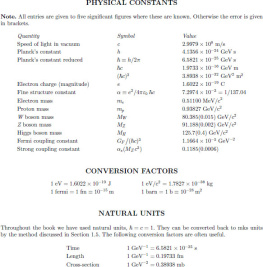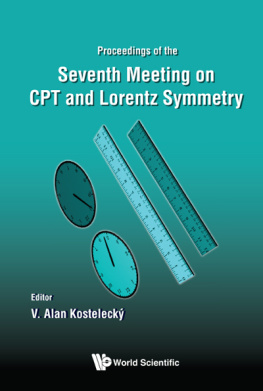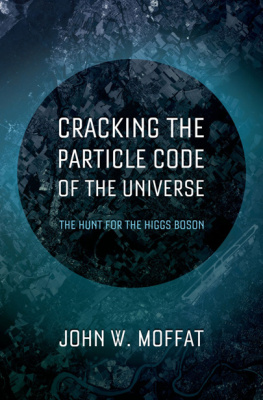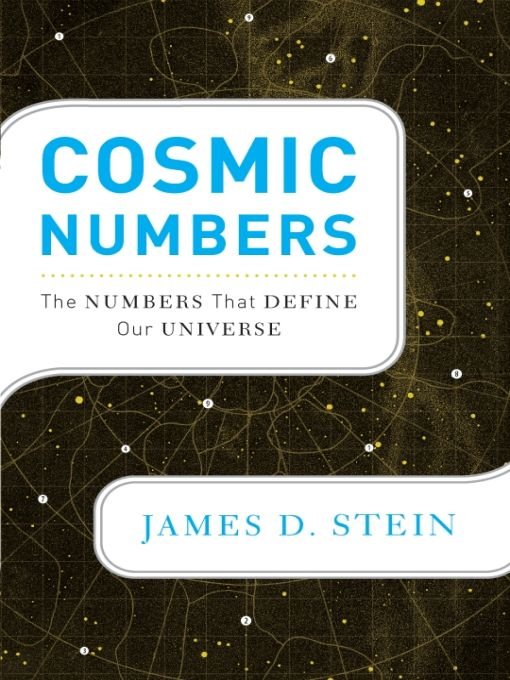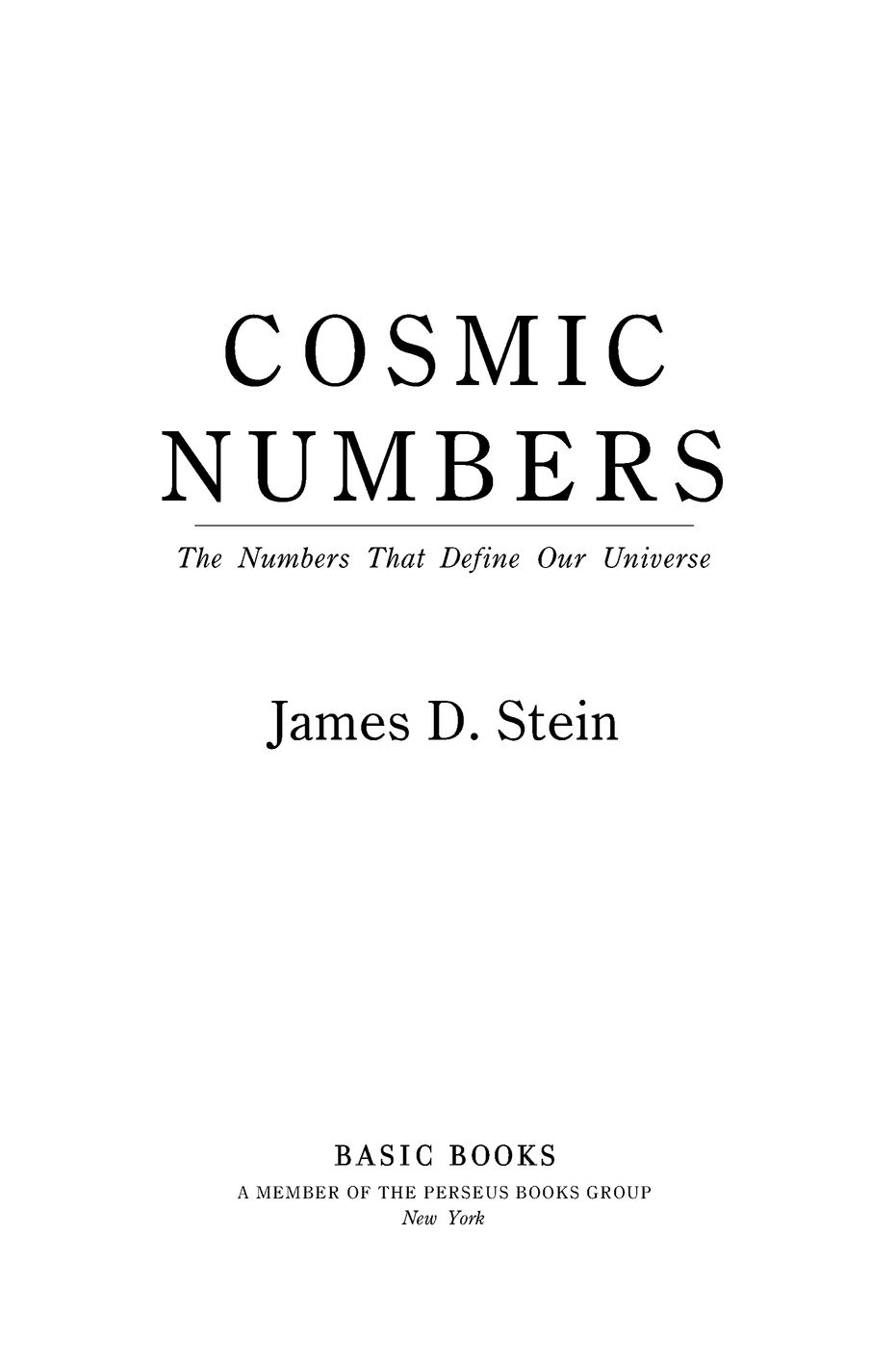Table of Contents
ALSO BY JAMES D. STEIN
How Math Can Save Your Life
The Right Decision
How Math Explains the World
TO BILL BADE,
with great appreciation for all your help
PREFACE
Something I had never experienced before happened while I was writing this book.
Id written several previous books, but Im not sufficiently well established as an author to simply write a book and have a reputable publisher bring it to market. Like most prospective authors, I have to write a proposal, which consists of an outline of the book, its potential market, and a couple of sample chapters. My agent then shops it to various publishers, andwith lucksomeone offers to publish it.
Ive always been fascinated by numbers, and it occurred to me that the discovery of the numbers that are the heart of this bookthe Cosmic Numbers, if you willwould make for a fascinating book. There are very few new ideas under the Sun, and this idea had occurred to other authors as well. Martin Rees had written a book called Just Six Numbers (a few of which are in this book) describing the six numbers that he felt lie at the heart of cosmology, but there were other numbers that I felt also deserved to have their stories told. So I wrote up the outline for the book, as well as an introduction and a sample chapter on Absolute Zero. To my great joy, not only did Basic Books, the leading publisher of scientific trade books, decide to publish it, but T. J. Kelleher, whom I knew to be a terrific editor because I had worked with him previously on How Math Explains the World, agreed to work on it.
I knew T. J. to be a great editor because, among other reasons, when we were working on the previous book, he spent a great deal of time structuring the sequential organization of the chapters. This greatly added to the flow and readability of the book; his choice was not the one I proposed but it unquestionably worked out better. I did not think that organization would be a similar problem with this book, as the cosmic numbers it discusses belong to three branches of physical science: physics, chemistry, and astronomy. I initially saw the book as being organized along those lines, and started work on the obvious first chapterthe gravitational constant.
What made the process of writing this book remarkable was that each chapter seemed to presage the next, organizing itself by the historical development of science rather than by grouping the chapters by discipline. After a few chapters, I realized that I was writing an outline of the history of science as exemplified by the numbers that I had decided to use. Its not a complete history of science by any means; the life sciences are nonexistent and the development stops somewhere in the middle of the twentieth century. Nonetheless, if you give this book to someone who knows absolutely nothing about science (which unfortunately describes a large segment of the American public), by the time they finish it, theyll have a very good idea of what has happened in the major physical sciences. Its history by the numbersthough not in the conventional sense of the word.
Several other things worth mentioning happened while I was writing this book. While doing the background reading that this book required, I had an opportunity to read the biographies of several of the scientists whose contributions appear herein. I dont know which impressed me morethe quality of the writing or the scholarship displayed in the thorough researching of the individuals involved. Some of these books are listed in back, but the ones that absolutely blew me away were The Master of Light, the exquisitely detailed story of Albert Michelson (written by his daughter); the short but extraordinary Ludwig Boltzmann (written by Englebert Broda), a book that made you wish you had the opportunity to spend one hour in Boltzmanns company; and Chandra (by Kameshwar Wali), a description of the professor who awesand to some extent, terrifiesstudents, but who is universally admired and loved by his colleagues.
Four people made substantial contributions to enable this book to be written. Quite simply, T. J. Kelleher edits like no one else I have ever encountered. Even when some of my favorite passages have been excised, it is almost invariably with complete justification, and the book is nearly always better as a result. I also noticed a disconnect between T. J.s style and mine in the first chapter or so that he revised, but after that, when I read the revised chapter, it almost seemed to me as if I had written it completely! I have no idea how he does it; I can only write in my own styleand my guess is that every one of T. J.s authors would attest to this ability. It helps to have an editor who not only notices the flaws in your presentations, but when he remedies them, it seems like you have written the material. Finally, T. J. has a love for science and mathematics that one rarely finds in anyone other than a scientist or a mathematician. Ive only encountered one other such individualand that person was my father, coincidentally also a Harvard man, as T. J. is.
I owe my writing career to my agent, Jodie Rhodes. These are difficult times for authors, as publishers are often unwilling to take risks, and it must be extremely difficult for agents to encounter rejection and still be willing to stand by their authors and fight for their rights in an environment where sales are difficult to obtain. Well, it may be difficult for other agents, but Jodie has pitched for me and battled for me under conditions that can only be described as arduous and disheartening. While I think Im a passable writer, it is necessary to find an editor and publisher who share this opinion, and Jodie has extensive experience that has enabled her to match me with editors and publishers who appreciate my efforts. Possibly other agents could have achieved thisbut I doubt it, and I have no idea what I will do if she retires.
The third person is one of the most remarkable students I have ever had the pleasure to teach. Sometime in the 1980s, Dave McKay enrolled in an upper-division course in mathematical analysis that I was teaching. I have counted Dave as a friend and colleague ever since, and this book has benefited enormously from the fact that Dave, a fellow faculty member at California State University, Long Beach, has not only become an extremely adept instructor of mathematics, but an equally proficient instructor of physics as well. Ive always loved physics, but its been as one who worships the object of his passion from afar, as I have never understood the great ideas of physics with the same clarity that I understand some of the great ideas of mathematics. Dave doesbecause he has been willing to put in twenty-five years of simply studying physics with an eye toward understanding it the way mathematicians understand mathematics.
The reader of this book will notice a large number of calculations, because not only is this book about the cosmic numbers that define the universe, it is about numbers themselvesthe universal language, as Galileo called mathematics. Most of the calculations in this book require no more than very basic algebra, geometry, or maybe a little trigonometry, but often there is a physical theory in the background that underlies these calculations. The rationale for the physical theory lies outside the scope of this book, but most introductory physics texts contain all the equations and formulas I have used.



